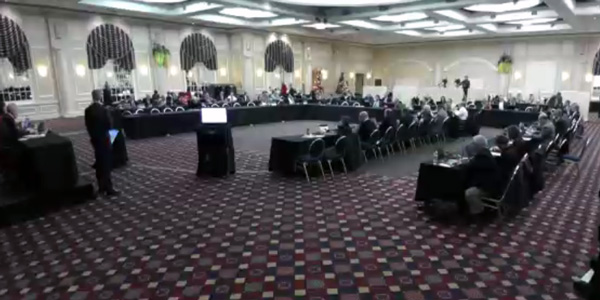By Rory D. Sweeney
WILMINGTON, Del. — A proposed revision to credit requirements for financial transmissions rights participants received significant stakeholder debate before the Markets and Reliability Committee and withered under the scrutiny.

The proposal was supported by FTR holders who complained that the “undiversified credit adder” applied to net counterflow portfolios caused over-collateralization of some FTR portfolios. The proposal, approved by the Credit Subcommittee, eliminates the adder in exchange for increasing the historical adjustment factor in underlying credit calculations for historically counterflow paths from 10% to 25%.
The adder was created following the $52 million credit default by Tower Research Capital’s Power Edge hedge fund in 2007. Members agreed to review it following a 2013 survey of issues of concern to the Credit Subcommittee.

Exelon’s Sharon Midgley had complained at the Dec. 14 Market Implementation Committee meeting that the change would increase her company’s credit costs, but the committee approved the change 88-34. (See “Credit Limit Changes Pass Despite Exelon Objections,” PJM Market Implementation Committee Briefs.)
That changed in the sector-weighted vote at the MRC on Dec. 22, where it won a majority of only one sector (69% of Other Suppliers), scoring only a 1.25 out of 5.

Exelon’s Jason Barker criticized how the credit increases would be implemented, saying it would be taking large “chunks” of credit from overcollateralized portfolios and “peanut-buttering” it over other undercollateralized ones. “We think that the balance is certainly off,” he said.
“From a customer perspective, I think it’s difficult to take the chance as we know the facts today,” said Susan Bruce of the PJM Industrial Customer Coalition. “I’m not in a position to take a chance, but I’m willing to talk more about this.”

PJM’s Stu Bresler said the RTO “doesn’t have a dog in the fight” over whether members are willing to accept potential defaults. But he said it does have a long-term concern.
“Even if the members are willing to accept additional risk … we have to consider the effect and potential ramifications,” he said. “I think it goes beyond reputation. It goes to the confidence to participate in the markets if [a default] were to occur again.”

Opponents of the changes, including the Independent Market Monitor, preferred to maintain the current protections against events like the Tower default. “I’d prefer that something like that never occur again,” American Municipal Power’s Ed Tatum said. “I haven’t seen an upside for the stakeholders but for those who are performing these transactions.”
Bruce Bleiweis of DC Energy called the proposed changes “good policy” that “right-sizes” credit portfolios. He also questioned whether the incident that precipitated the changes could occur again given rule changes that have been implemented in the interim.
“We don’t think that’s an accurate stress test because we don’t think that the Tower portfolio would have occurred,” he said. Tower wouldn’t have taken the position because its bid collateral would be more than $35 million today, he theorized.



